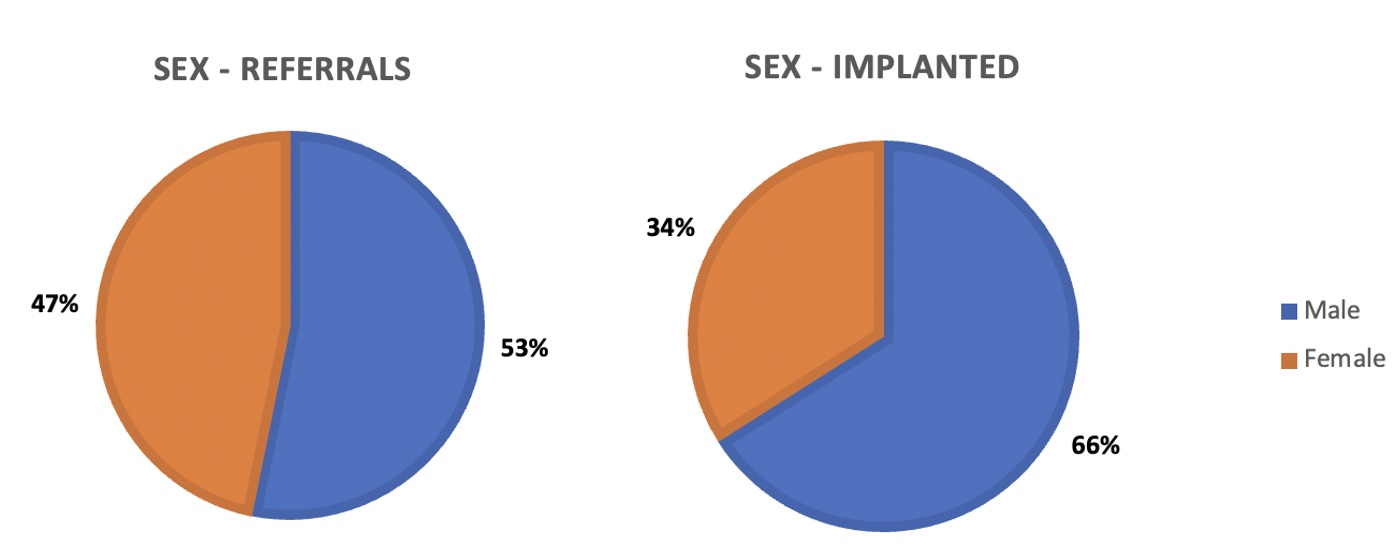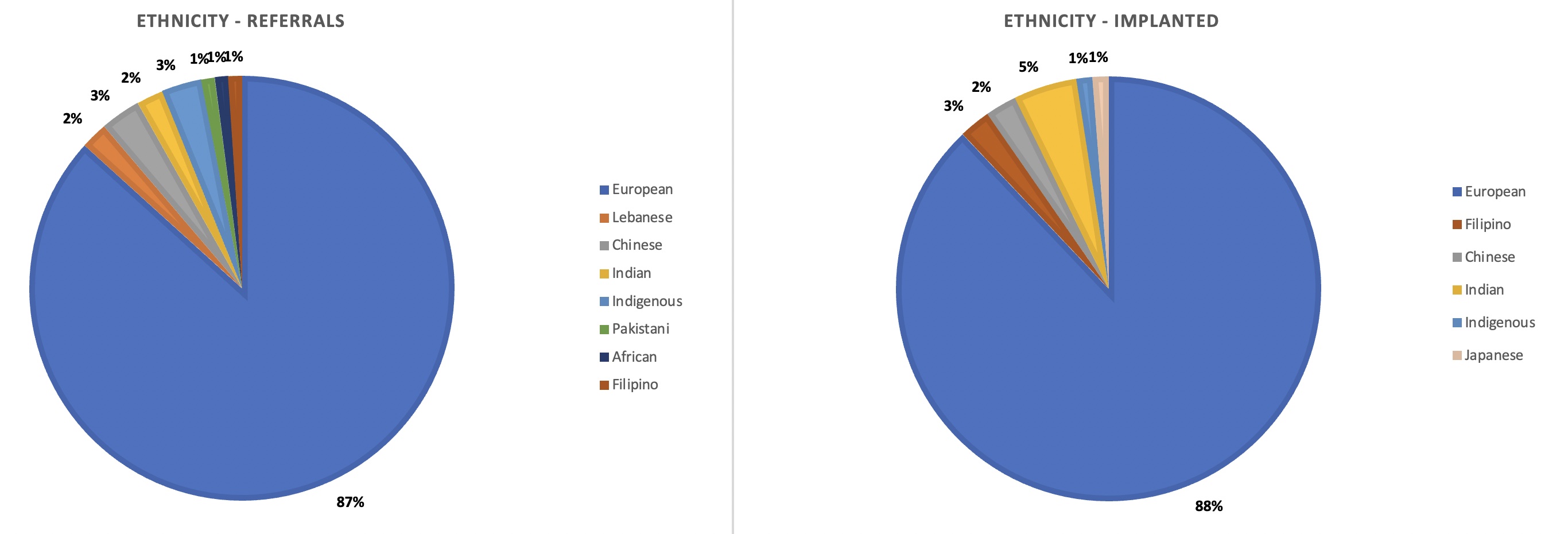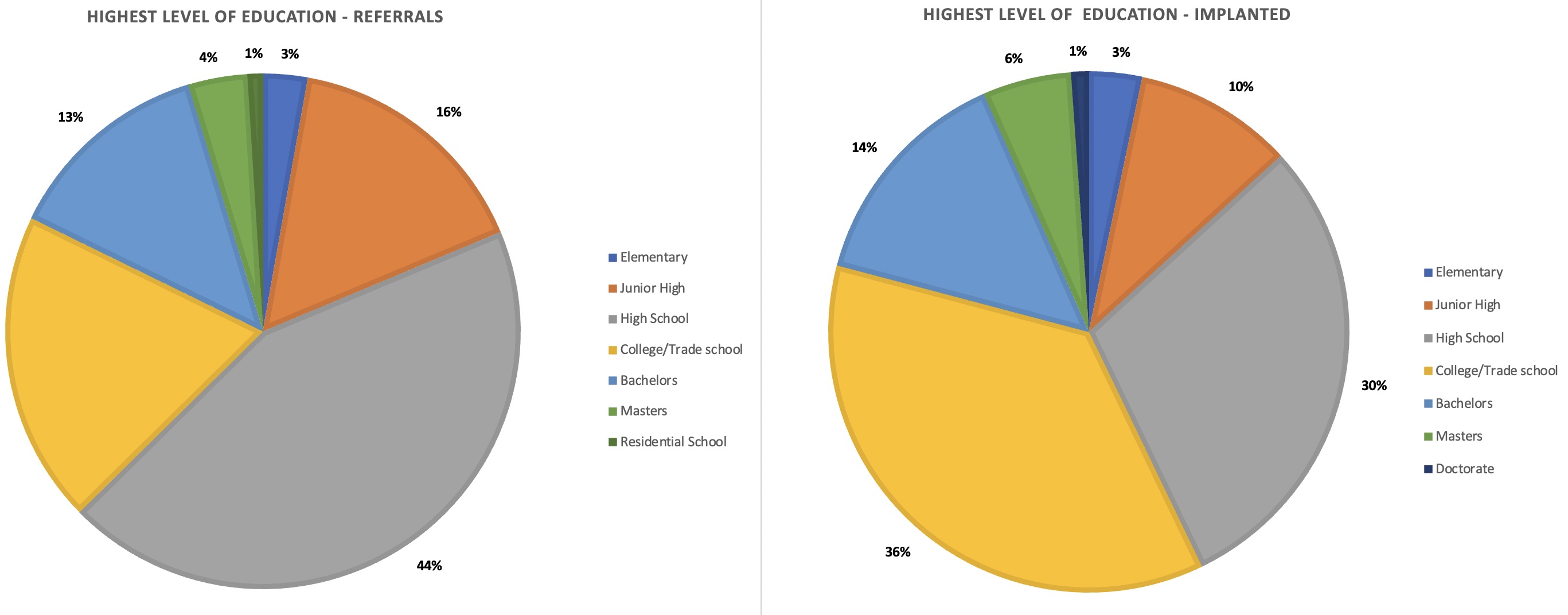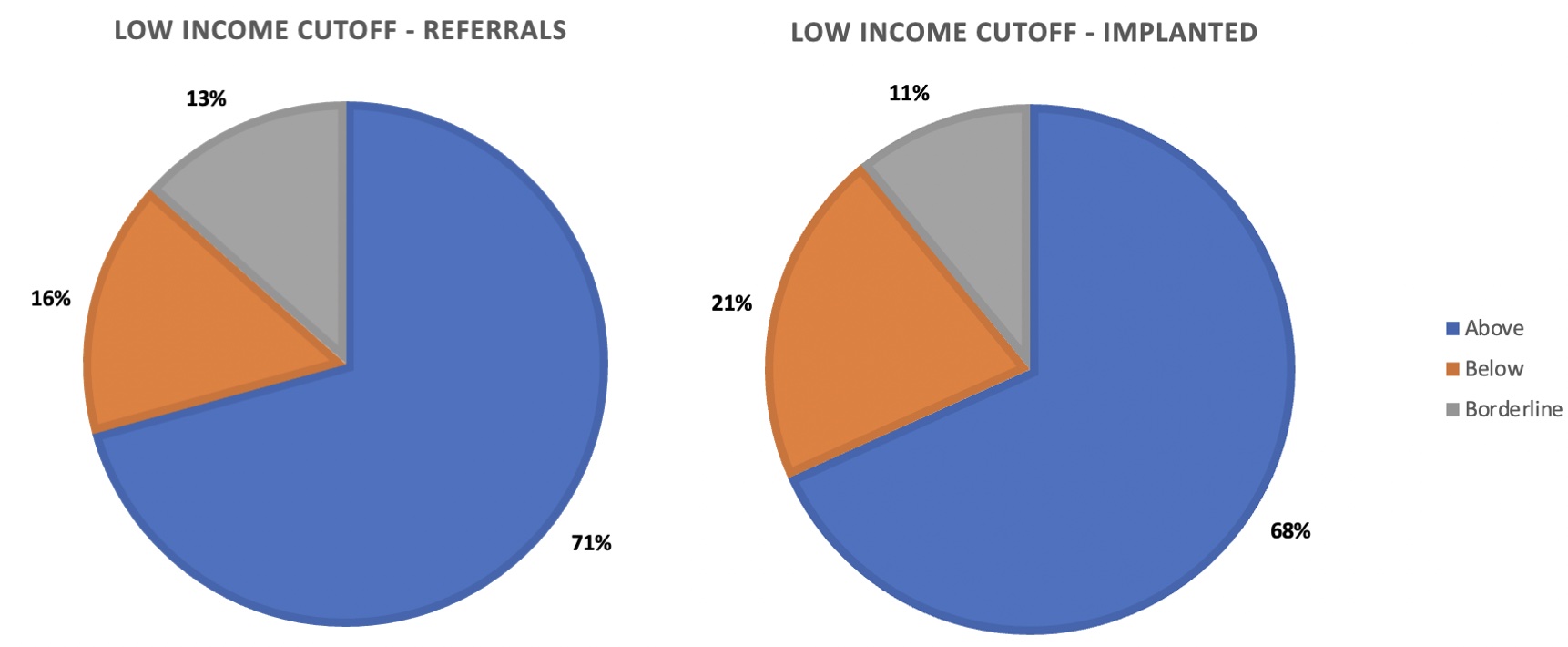Category: Surgical Therapy: Parkinson's Disease
Objective: To identify disparities in gender and ethnicity among deep brain stimulation (DBS) patients to reduce differences in access to care by implementing strategies to address patient-identified barriers and deliver information in an understandable, culturally sensitive manner.
Background: DBS is an established and important treatment for Parkinson disease (PD), tremor, and dystonia in appropriately selected patients when medical treatment alone is inadequate. Nonetheless, DBS may be underused in certain patient populations.
Gender and cultural differences in the perceptions, attitudes, and articulation of symptoms among racial and ethnic groups represent important variables in patient attitudes towards advanced therapies such as DBS. We aim to identify disparities in access to DBS and develop educational tools to improve the equity of referrals for this necessary treatment.
Method: Demographic data was collected via chart review and phone interview for patients at the University of Alberta from December 2018-May 2021. Comparison was made between new referrals and implanted patients.
Results: A total of 141 new patients were referred for DBS, and 97 patients were actively followed at the time of data collection. Of new referrals, 53% were male compared to 66% in the implanted group [figure1]. The majority of patients (>85%) in both referral and implanted groups were of European descent [figure2]. Not a single patient of African descent was implanted, and only one was referred. The gender and ethnicity of our cohort do not represent population demographics. English is the first language in > 75% patients and 80% were born in Canada in both cohorts. At least 80% of patients in both groups completed 12 years of education with around 70% being above the low income cutoff in both groups [figure3 & 4].
Conclusion: This project illustrates the gender and ethnicity disparities in access to DBS for movement disorders. Language barrier and ethnicity can be barriers. It will be essential to identify systemic biases and barriers for equal and universal patient care. In a future study, we will develop culturally sensitive education materials and establish community engagement to overcome access barriers to DBS.
To cite this abstract in AMA style:
S. Poonja, K. Yen, J. Miyasaki, A. Shetty, T. Sankar, F. Ba. A Single-Centre Canadian Study of Disparities in Access to Deep Brain Stimulation for Movement Disorders [abstract]. Mov Disord. 2022; 37 (suppl 2). https://www.mdsabstracts.org/abstract/a-single-centre-canadian-study-of-disparities-in-access-to-deep-brain-stimulation-for-movement-disorders/. Accessed February 6, 2026.« Back to 2022 International Congress
MDS Abstracts - https://www.mdsabstracts.org/abstract/a-single-centre-canadian-study-of-disparities-in-access-to-deep-brain-stimulation-for-movement-disorders/




